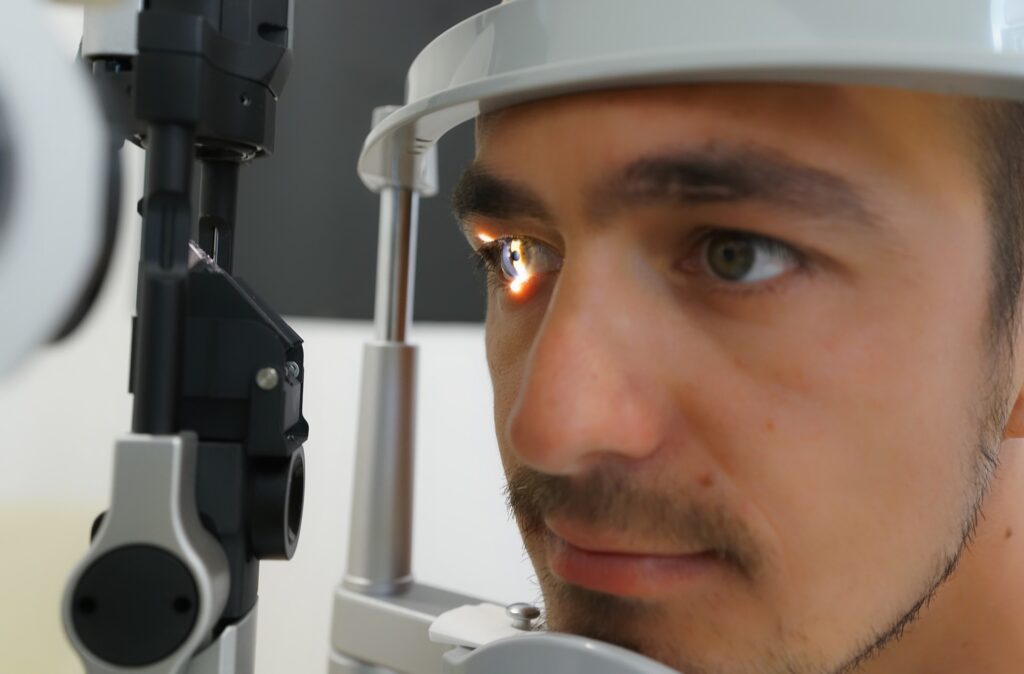Raising a child is an exquisite journey filled with numerous responsibilities, one of which is safeguarding your child’s precious eyesight. Vision is a critical aspect of your child’s development, education, and overall quality of life. Therefore, integrating effective strategies into your parenting approach to protect your child’s vision can set them up for a lifetime of good eye health.
The Significance of Vision in Childhood Development
First things first, let’s talk about the importance of vision. From the moment they open their eyes to the world, children begin to navigate their surroundings primarily via sight. Vision is intertwined with learning processes, physical activities, and social interactions. Poor vision can affect their educational performance, coordination, and even social skills. Hence, as a parent, you become the first line of defense in protecting and nurturing their vision.

Schedule Regular Eye Exams
Annual or biannual eye exams are paramount from infancy to adolescence. These exams can catch vision problems that could potentially hinder their progress and go unnoticed by untrained eyes. A professional eye doctor can alert you to conditions like strabismus (crossed eyes), amblyopia (lazy eye), or refractive errors (myopia, hyperopia, astigmatism) early on.
Watch for Warning Signs
Kids often can’t articulate vision problems. Hence, guardians should watch for signs like squinting, head tilting, frequent eye rubbing, or complaints of headaches and blurred vision. If you observe any of these warning signs, it’s crucial to consult an eye specialist without delay.
Foster a Vision-Healthy Diet
Nutrition plays a massive role in eye health. Enhance your child’s diet with foods high in omega-3 fatty acids, vitamin C, vitamin E, lutein, and zinc. Spinach, kale, oranges, salmon, and eggs are excellent for developing eyes. Remember, healthy eating habits established in childhood can promote enduring eye health.
Encourage Outdoor Play
Research suggests that time spent outdoors is beneficial for children’s eye development. Outdoor activities allow children to focus at different distances other than the close-up work they do indoors. Get them outside for a minimum of one to two hours each day to play, which can also help delay the onset of myopia.
Protect Eyes from Sun Exposure
Ultraviolet radiation can deteriorate your child’s vision over time. Whenever they’re outside, ensure they wear hats and UV-protective sunglasses. Emphasize that shades are not just a style statement; they’re indispensable to shielding their delicate eyes from the sun’s rays.
Limit Screen Time
In our digital era, children are introduced to screens from a very young age. Excessive screen use can lead to digital eye strain. Set reasonable limits on screen time and encourage routine breaks using the 20-20-20 rule – every 20 minutes, look away from the screen at an object 20 feet away for at least 20 seconds.
Prioritize Quality Sleep
Adequate sleep is a fundamental pillar for a child’s overall health and well-being, which includes their eyes. A good night’s rest allows their eyes to recover from the day’s fatigue. Ensure they get the recommended amount of sleep every night for their age group.
Advocate for Eye Safety
Introduce and enforce the use of protective eyewear during sports and recreational activities. Accidents can happen, but with the proper safety glasses or goggles, harmful eye injuries can be prevented. Remember, your child looks up to you, so set an example by modelling the behavior yourself whenever necessary.
Minimize Exposure to Smoke and Pollution
Children’s eyes are sensitive to environmental pollutants and smoke. These irritants can lead to eye allergies or dry eyes. As much as possible, refrain from smoking around children and be mindful of the air quality in your home and community.
Optimize Their Learning Environment
Be it at school or a study corner at home, ensure that the lighting is adequate for reading and writing without causing glare on surfaces. The sitting position should also be appropriate – no lying down with books or devices, as it can lead to unnecessary strain.
Be Informed About Family Eye Health History
Genetics can play a role in the likelihood of developing certain eye conditions. If there are hereditary eye issues in the family, your child’s risk potentially increases. Discuss your family’s eye health history with your child’s optometrist to monitor for specific concerns.
Engage in Vision-Enhancement Activities
Certain exercises and games can help reinforce vision skills. Puzzles, building blocks, and ball games improve hand-eye coordination, while reading and art activities can benefit fine visual skills. Encourage varied vision-enhancing activities as part of their daily fun.
As you’ve gleaned, shielding your child’s vision encompasses everything from proactive eye care to fostering a supportive environment. Remember, it’s the small, daily practices like offering nutrient-packed snacks, ensuring your child gets plenty of playtime outdoors, monitoring screen use, and being observant for the slightest changes in their vision that aggregate to make a world of difference. By adopting and integrating these tips into your child’s upbringing, you’re not only protecting their vision — you’re setting a foundation for a healthy lifestyle that prioritizes their well-being in every glance, gaze, and blink. Let’s raise a generation that sees the world not just vividly but healthily.



